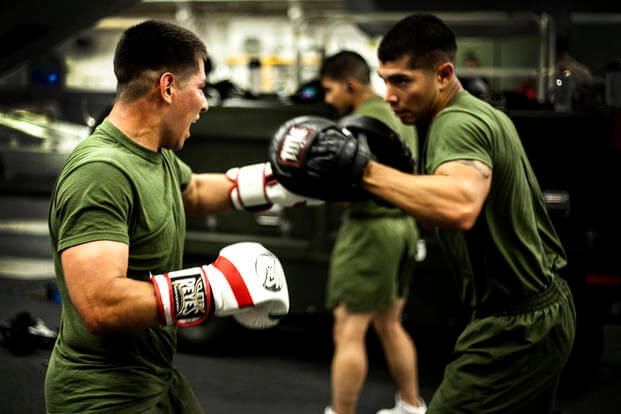No matter what challenge we take on in life, there are moments where you are forced to give up or fight on. The goals, the timelines, the processes are different for everyone, but we have to rely on pure will, guts and determination and remember our why in order to reach our goals successfully. So how exactly do we learn from our past so we can change our future?
Past experiences build you today, prepare you for tomorrow
Past successes give us the confidence to move forward, and our failures teach us even more. We learn how to build good habits and what not to do while building resilience for future challenges. This is how mental toughness is built -- one day at a time -- by failing, not quitting and getting comfortable being uncomfortable.
Humility possibly could be the most valuable asset for future growth. Eventually, you will learn that you cannot do everything by yourself; you need a team, a training partner, a mentor -- especially when your goal is highly challenging with large fail/attrition rates (special ops, medical school, law school, weight loss, etc.).
However, after all the preparation, game day will arrive: the day when you have an option to keep moving forward in the program or stop. Here is a useful sports psychology skill you can use to pull from your past and bring to the future when you feel like you are done and have nothing left. It is called the performance cue.
To make a cue word or performance cue work best, you have to tie it into a moment of excellence from your past, a moment of excitement or some other feeling associated with a great accomplishment. For example, a cue may be tied to a walk-off home run in the ninth inning of a baseball game, sinking a buzzer-beating shot to win a basketball game or returning an interception for a touchdown in football.
Related: Stay informed with fitness tips every week
All of these are sports-related, but you can also tie the word to the feeling of the birth of a child, graduating school or some other long-term accomplishment. Give that feeling a name like "game-winner," "game on," "let's roll," or "let's do this."
My personal mantra is "train to compete," because I figured out that if I was thinking about winning something, I never thought about quitting. That mantra kept my mind off quitting and pushed me to perform harder.
The present: Game day and the moment of stop or keep moving
When you are in that moment of quitting or not quitting, you typically have a series of obtrusive thoughts that start to cause some self-doubt. It could be actual physical pain and discomfort, but that moment of the first self-doubt will evolve quickly into "this isn't for me," or "I quit; I can't do it."
You have to stop this before it overwhelms you. Take time to remember your goals. Why are you doing this? Have a good answer ready, then keep moving forward. This shuts down that quit demon that pops into your head as you roll out of bed before you start moving, when you get wet or when you are tired.
Another trick to help you get out of that moment is the "name it -- tame it skill." Obtrusive thoughts, flashbacks, or moments of self-doubt are survival skills, not a sign that you are weak or crazy.
These thoughts are designed to keep you from hurting yourself or to keep you alive to survive what the brain perceives as potentially dangerous, uncomfortable or tiresome. You need the energy to survive, and the brain wants the body to be more efficient with that energy use. But when you are 100% putting out (physically, mentally, emotionally), you have to shut that down really quick, or it can stop you in your tracks.
Give that obtrusive thought or image a name, and it will help the brain find its proper place in the mental filing cabinet. I like funny names like "fuzzy bear" when my kids have a nightmare about a monster chasing them. For those long nights, I used the term "compete mode." When doubt creeps in, I quickly shut it down with "compete mode," "beast mode" or "Bulldog" (my high school sports mascot).
The future: Seeing the light at the end of the tunnel
Take time to remember how far you've come. Whether it was long practices in sports, staying up late to study or an 18-hour day at SEAL training, I always knew that there would be a moment when I was done for several hours. I could shower, eat, stretch out and go to sleep.
In long-term goal accomplishment, it is great to be motivated. And you will be once you realize the path you want to take. But in the end, your habits and discipline will pull you through when the days are long and motivation is low. Your mental toughness will increase and help you through your next challenge.
Stew Smith is a former Navy SEAL and fitness author certified as a Strength and Conditioning Specialist (CSCS) with the National Strength and Conditioning Association. Visit his Fitness eBook store if you’re looking to start a workout program to create a healthy lifestyle. Send your fitness questions to stew@stewsmith.com.
Want to Learn More About Military Life?
Whether you're thinking of joining the military, looking for fitness and basic training tips, or keeping up with military life and benefits, Military.com has you covered. Subscribe to Military.com to have military news, updates and resources delivered directly to your inbox.
















